Liv: Thanks for joining me. Thanks for having us! So yeah, this is a podcast about competition, primarily, and that's mostly what I want to dig into with you guys today. To start us off, I have to ask the question: which of you two is actually more competitive?
Andrea: We know the answer to this.
Alexandra: I feel like I'm more competitive.
Andrea: She's definitely more competitive. I've come to the conclusion because when I was younger, it was really frustrating for me. Our dad had a graph of our chess ratings on the fridge, and there was one moment when I passed, and then it all went downhill from there. As a kid, I always felt really bad that I was as good at chess as her. I didn't get into Stanford, but then I realized my strength is creativity, and I'm not as passionate about getting ratings or points. Alex definitely has dad's genes; they're both hardcore gamers.
Dad loves poker, so I will give that one to her because she deserves it.
Alexandra: I'll take it!
Liv: So wait, you had ratings of each of you on the fridge?
Alexandra: Yeah, it was not super healthy. It was only there for a year, but my dad would definitely try to use me to motivate Andrea.
Andrea: Which worked in some sense, but I don't think it worked for chess.
Liv: But why not?
Andrea: Well, looking back on it now, I just don't think I was ever as passionate about chess as my sister was. She really loved playing tournaments, and for me, it was just like this is my gateway into college; I have to play. But I didn't really enjoy studying, and I was really depressed playing chess tournaments. Alex had a great time competing, so we just had very different childhoods when it came to chess.
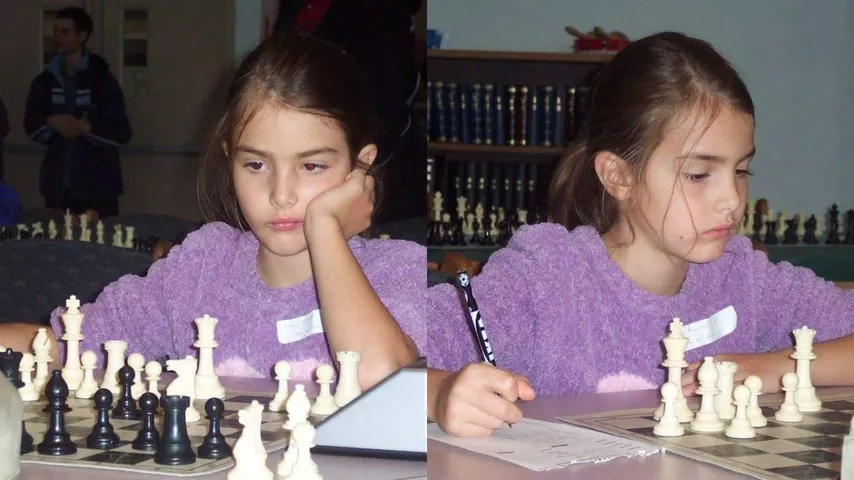
Alexandra: Although I've also reflected back and think a big reason why I liked chess is that I needed to be good at something, and it was just the thing that I was best at. I almost liked chess more for some easy-to-track progress than for the game itself—which is a little dark.
Liv: Yeah, that's the thing I'm reflecting on too. When I was a kid, because I was so competitive as well, right? I had to be! I remember when we would find out at the end of the year what we got in science or geography or whatever the exam was—not only did I care about what my school grade was; I had to know what the other same girls got. I went to an all-girls school, so it was only girls I could compete against—but I had to know what everyone else got. Thinking about it now, my dad would often ask me: "Okay, so what did you get?" "Oh, I got 89." "That's good! What was the highest score in the class?"
Andrea: Yeah, that was exactly our parents' mentality as well!
Liv: That one feels slightly less concerning because that makes you compete against yourself. If I had to summarize what is healthy versus unhealthy competition, it's healthy when you use it as a way to look at versions of yourself and think: "Okay, I can do better."
I mean, actually what's healthy is when you're having fun! That's the most important thing: am I still having fun being competitive? Okay, yes! But it's when—like—I noticed when I felt icky about my competitiveness; it was when I'd see other perceived rivals.
So it sounds like you guys were encouraged to be rivals from a young age.
Alexandra: Well, Andrea was quite a bit younger..
Liv: Seven years right?
Alexandra: Six and a half! Close enough! If anyone asks, we're two years apart!
But yes! No, but I think it didn't feel like competition for me because she was so much younger; I had such a head start that I thought she'd never catch me. But when I saw that graph that one year when she was better than me at her age—it did make me sweat and panic a little bit honestly.
Andrea: I always saw Alex as a role model in everything; she has always been the person I've looked up to which was great. I think she has been my greatest role model, so it was never someone like I'm competing against her.
Alexandra: So, yeah, I didn't see it like that either because the age gap was large.
Andrea: I think if we were within two years, it would have been more competitive. We never saw each other in school because she was always in high school and I was in middle school and then college when I was in high school. So, different story.
Liv: Do you think it's a common ingredient of all great chess players that they had parents who were very—let's say—encouraging, to put it politely?
Alexandra: I think definitely! And also that they were very competitive. Because at the end of the day, you have to put in so many hours into chess, and you have to be fiercely competitive to keep wanting to improve.
Liv: When did you both start actually playing in tournaments?
Andrea: I think I was seven or eight. Same for Andrea; she started when she was six or seven.
Liv: Did you see it as, "Oh, this is a fun pursuit I do," like you were playing for the love of the game? Or were you not old enough to really realize it? Was it just like, "This is our lives"?
Alexandra: I was not old enough to realize. I would just show up at chess tournaments, and I don't remember being too stressed. Even when I won the first national tournament I competed in, I didn't really think much of it.
Andrea: Chess was such an inherent part of our lives. I remember my first memories are of my dad teaching our chess club in Canada, and Alex always going to tournaments. It was just something as a kid that you do—you'd go—and you didn't really know what was happening. But you're like, "Oh, if I win Nationals, I get free pasta at a tournament in Greece and we're staying at an all-inclusive hotel."
Alexandra: Although I do remember when I won my first national tournament and was on this local newspaper; my coach came to me as an eight-year-old and said, "It's easy to get to the top; it's hard to stay on top." I remember that spooked me a bit. That was the first moment when I started realizing, "Oh shoot, this is going to be a lot harder than I thought."
Liv: That's so interesting that you remember that from such a young age—that's a core memory.
Oh, how was your relationship with other kids on the tour? Presumably, you made friends with kids your own age group.
Alexandra: We had somewhat different experiences. For me, we moved from Canada when I was 13, and I got really isolated. Honestly, I didn't feel like I made truly close friends until I got to college. So then chess was sort of my escape; most of my closest friends were chess players.
Whereas for Andrea, she was like this cool popular girl in high school.
Andrea: I was not popular! So Alex was the popular chess girl—she dated the chess players and traveled; she was really hit at the chess circuit.
Alexandra: But "popular chess girl" is such an oxymoron!
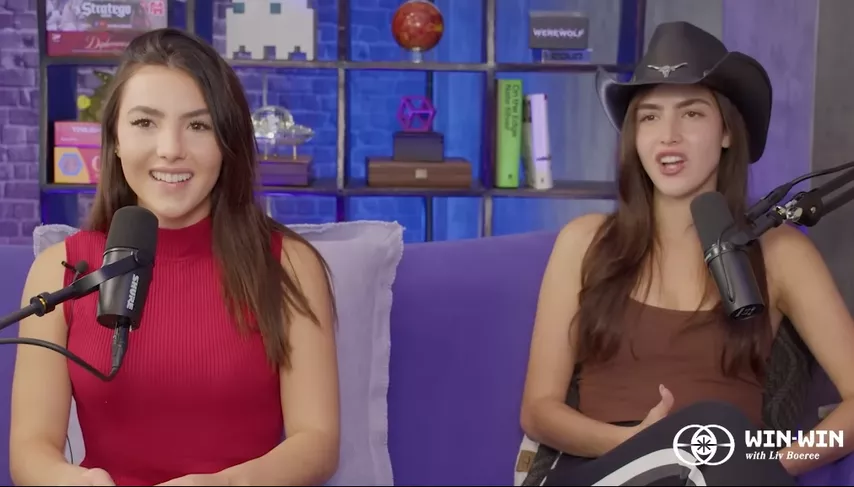
Andrea: Yeah! But now look where it got you! You are the popular chess girl! We are where we are because you took that and made it into a business.
But in high school, I really wanted to dance; I loved music and art. It's funny speaking to my parents now because they would never encourage it—they always said, "You have to play chess because you're never going to be as good at music or dancing as you are at chess." Now my dad kind of regrets it because now I'm actually doing stuff with music.
But as a kid when people would ask me what I did, I'd always say, "I'm at a dance tournament," not at a chess tournament—just because I didn't really bond with any chess players—which has changed as an adult; it's really nice now.
But as a kid, I never felt like it was my world—very different stories.
Liv: How was it when you'd play against your friends?
Alexandra: Well, I wouldn't often compete against my friends in chess. I guess I had one close friend—I didn't like playing against my friends—but sometimes I had to. Like when I won US Girls' Nationals, I had to play against one of my best friends in chess and beat her—but you know there’s a full ride scholarship on the line; you do what has to get done!
Liv: Whoa! Did that create any tension between you guys as friends?
Alexandra: No! Honestly, everybody understood that at the chess board there are no friends!
Liv: Right! So you actually knew that from a young age? People often ask me this question as a poker player: "Wait, you win money? What if you end up at the same table as your best friend?" You're literally going after each other—bluffing each other—trying to wind each other up and put them on tilt to win!
Alexandra: When I was a kid, I would ask my dad if I could offer draws to my friends, but eventually the stakes got so high that I couldn't do that anymore. I grew out of it around age 10.
Liv: Wow! Did either of you ever have a nemesis?
Alexandra: Her name was Miriam Roy. She was this girl who was really good at chess, and we'd always be competing in the same tournaments. She was the only one who I felt could give me a real run for my money, but then she stopped playing.
Liv: So what is she doing now?
Alexandra: I have no idea, so I guess I won!
Andrea: My nemesis was a boy because there was only one other kid at my chess club who was in high school and also ranking in the top. He ended up going to Stanford for chess—that was my dream school. I applied three times and got rejected. Then I came to Stanford recently to film some videos as a YouTuber, and I ran into him. I was like, "You know, I'm actually happy that I don't feel like this was my place." But it was very funny because I remember as a kid being so upset about it. Now, it was actually very cool to see him at Stanford—just a different life.
Liv: So you wanted to go to Stanford. What did you end up doing? You did end up doing this full-time, right?
Andrea: When we started officially streaming together, I would always make appearances when I was like 15. But right when the pandemic began, Alex came home obviously because we had to quarantine, and she was streaming. I graduated from senior year a couple of months early because all the schools got shut down. I was supposed to go to the University of Toronto, but then everything went online. We started streaming and thought, "You know what? This is going well; let's see where it's at." We took one gap year because what's the point of doing online school for your first year? We did one gap year and thought, "This is kind of going really well." So then we moved to Austin for one more year.
I liked Austin! I applied here at UT Austin for business honors and got in. I thought, "Great! I'm going to live in Austin with my sister and go to business school." That's a dream! One year later, we were like, "Actually, we want to move to LA because we want to be bigger than Twitch; we want to be YouTube." So I'm like, "Okay!" I applied to UCLA and got in. I thought, "I'm going to go to school in LA!" By the third year, I realized I'm not going to school anymore.
Alexandra: My mom wasn't happy about it at first, but she's now accepted it.
Liv: You are doing applied business! That's the thing—it's like you go to business school to learn how to do business or you can just do business!
Alexandra: I completely agree! But our parents—they're Eastern European immigrants—they wanted engineers and doctors when we did not give them that.
Liv: Yeah! I mean, I don't think Igor will mind me saying this: he got his parents out just as the Berlin Wall was falling out of Soviet Russia. He got them a better life in Germany so they could get a good education. Then Igor, in his final year of math—he's amazing at math—but he was making so much money playing poker that he thought, "Every day that I don't do this is just wasting time." What would he get? An entry-level job if he graduated for like a fraction of what he’s earning?
He thought it made no sense; he’s already doing applied math! But to this day—even after he’s gone on and had these crazy jobs working for Elon—his mom is still like, "So when are you going back to finish your degree?"
When you made the decision to become full-time streamers and then YouTubers, what were your parents' reactions? Was that a specific conversation you had to have?
Alexandra: So, I had finished Stanford and worked on a startup for three years. The startup had failed, and instead of getting a real job, I told my parents I'm moving to New York and I'm going to stream chess online. My mom was like, "I can't believe she wasted her degree on this!" She would say that when her friends asked what I'm doing, she would just lie and say I'm a consultant.
So they were very confused!
Andrea: But you also have to think about where they're coming from: Romanian immigrants who fled communist Romania—they worked multiple jobs just for us to get our degrees—and now they understand it more since we've been doing it for so many years.
I remember being in high school when Alex started streaming; there was just a lack of understanding. My mom would be like, "Your sister's just playing chess on the internet," and it's obviously so much more than that! But it took me—and I was a young kid who grew up with the internet—so many years to be like, "Oh, this is the point of this."
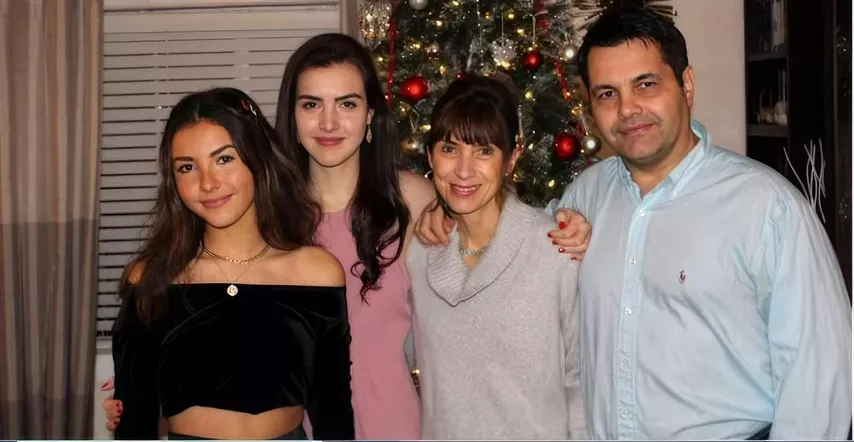
Alexandra: But honestly, it wasn't just them; even our investors from our old startup said things like, "You have to get a real job eventually."
My friends from college were like, "You're just playing chess now." I felt like that's why I actually moved from the Bay Area—because I was like, "Nobody's going to get this. It's so insane that if it doesn't work, I'm going to look like an idiot."
Liv: What is it about games that you love so much? Or is that a non-question?
Alexandra: I love games personally! For me, they completely engulf my focus, and I enter a flow state that feels incredible. I also just like winning. When I'm losing at a game, I don't enjoy it as much.
Andrea: It's funny because my relationship with games is something I've thought a lot about, and I've really had to come to terms with it. Same with Alex—obviously everyone loves winning! I definitely had fewer wins, but now I can understand the flow state. For me, I've been able to find that with music; when I'm working on it, it's the first thing in my life that I can work on for eight hours in a row and just be completely immersed. It’s such a magical feeling.
I don't know if I really felt that with chess just because I was always so distracted. Even when I was focused on a goal, maybe it was just that I wasn't as passionate about chess or maybe it was just a different way of engaging. Now that I've experienced an actual flow state with something I'm really passionate about, I don't know if I ever experienced it with chess. But I definitely enjoyed the entertainment value of games. When it came to playing chess, I loved how you could bring in conversations and dynamics—everything else—but you don't really have that in regular competitive chess. However, we did once we built our own world around chess.
Liv: Can you describe a little bit more about what this flow state is for you?
Andrea: Well, I'm very ADHD, and it's very hard for me to hyperfixate on one thing—which never happens in chess. Sure, you're sitting there thinking for five hours about a move, but then you start thinking about what you're going to do tomorrow or what you're going to have for lunch. You have to bring yourself back; it feels like you're constantly battling with yourself to focus on something.
But let's say I'm preparing a DJ set for Berlin—I’m just going through my music, gritting it out, queuing it up, doing transitions. For me, it's something that comes naturally; all the ideas flow easily. I feel like I'm in a very creative zone and don’t have to force any ideas out. Once I reach that state, I can build an entire set in just a couple of hours. If it's a day where I'm not quite there, I can spend triple the amount of time and be way less productive because I don't feel extremely creative.
It has to be different with chess; I don't know.
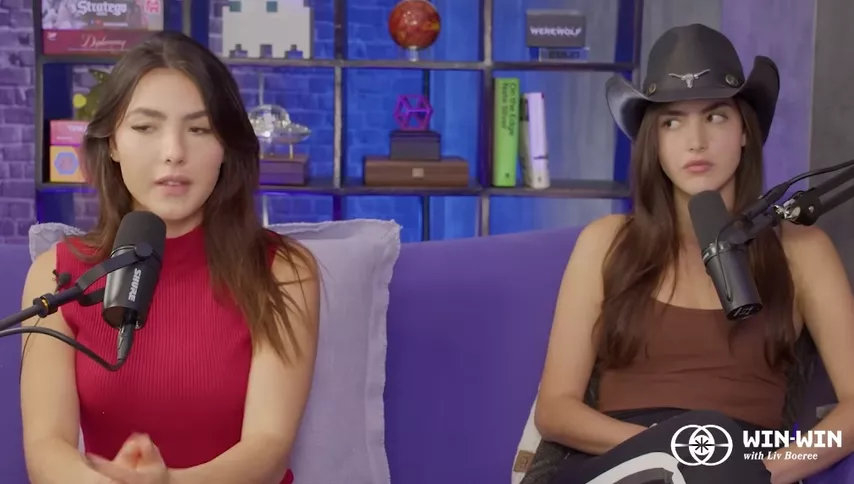
Alexandra: For me, I'd lose track of time—sometimes I'd just play chess on the internet even when not streaming—and five hours would pass without me realizing it! It felt like only an hour had gone by; I'd entered a different state.
Liv: So it sounds like the common thread is that you're in a different state of time—a different state of consciousness?
Andrea: Yes! You're just so engrossed!
Liv: But what's also interesting is the way you describe how you feel when you're playing versus when you're DJing—it sounds like you're almost not using your logical brain anymore.
Andrea: Right! It feels like it's a different part of my brain, It's hard to explain. Music has been so cool because it's not even about live performance for me; I'll spend three weeks preparing for one live performance. The way I approach DJing is very different from everyone else—and I think that's also my strength—where I'm able to plan everything quickly.
I treat it like a chess match; I like having every transition planned out. The whole thing about DJing is playing for the crowd—but I'm there to give them a show and tell a story! I want the entire track list planned out beforehand. It takes hours to do that! You're on music software going through thousands of songs and seeing what lines up naturally.
I like thinking of it as a puzzle because in my head, I want to start with this dark dramatic emotion, then go high energy and change genres. It's like having the journey laid out but then needing to put all the tracks together. Once you get into the nitty-gritty of DJing—it’s fun! There are definitely parallels between puzzle-solving in music and chess, but it's kind of hard to explain.
Liv: What's the difference between a puzzle and a game?
Alexandra: I feel like games have multiple puzzles in them and include other elements as well.
Andrea: A puzzle, for me, just feels like a structure you have to solve to reach one end conclusion. But in a game, there are so many different outlets through which you can win. In chess, for example, you don’t necessarily need a crazy tactic; sometimes you can just play solid moves consistently.
Liv: I guess the biggest difference between the puzzle of DJing and the game of chess is that there's a clear finite goal with chess—just like with poker or any competitive game. It's classically zero-sum: one of you wins the point, and one of you doesn't. Whereas DJing is interesting because it's actually very positive-sum; it’s about how big of an experience you can create. You can play an okay set, and people will have an okay time, or you can play an amazing set, and people will have the best time ever. But it’s much harder to quantify that.
Andrea: That completely changed my perspective on how I approach my sets. Every DJ is improvising—they play shows every other day, they know what they're doing; they just load their USB and pick tracks. But I want to have everything predetermined and mostly solved before I go in. Working on my set with an end goal in mind has completely changed the way I think about it.
So, what is your flow state?
Liv: There was a period of time when poker was a nice flow state for me—certainly early on when I first started playing the game and was in love with it. But we’ve talked about this before: there was a point after I won my first big major tournament at the EPT where it became harder to get into that flow state. It felt more like I was just going through the motions—like, "Okay, this is my job now; I need to perform."
I had my sponsorship patch on, and it no longer felt like a puzzle or something.
So now my flow state is honestly writing. I haven't been posting much recently, but I've just started doing more writing again. The most intense flow state I ever experienced was when I made that Moloch film. I locked myself in; it was something I was so passionate about.
I literally made it in a garden shed at the house we were staying in Oxford at the time—it was freezing cold, but that was the only place I had silence! I went mad in this little shed making every single bit of it. It was the most fun! A whole month went by—or however long it was—three weeks where Eagle would say I'd disappear at some point in the morning and crawl back in at night. He'd be like, "Okay good, you're still alive!" I'd have my contacts in looking crazy—dressed as this creature—but that was the most flow I've ever been in. It was just being lost in the creative process, and now I want to figure out how to hack that for more projects.
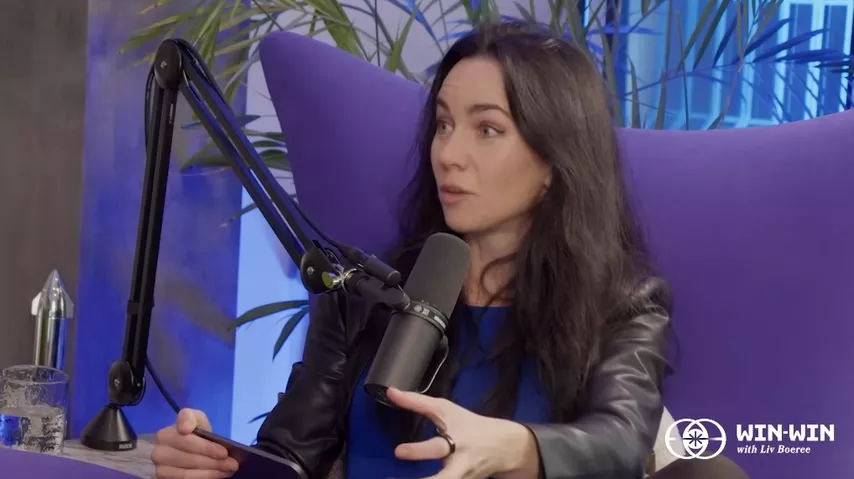
Andrea: What you said about poker resonates with me too! As soon as you brought up sponsors—it reminds me of my favorite creative, Rick Rubin. I listen to all his podcast episodes, and he did one with The Daily Stoic where he talked about coming back to your initial intention when starting something. He mentioned how the greatest death for an artist is when they start doing it not for themselves but for others—which becomes impossible once you've tasted success.
When you're a writer creating a book, if you're thinking about how you're going to market it while writing, you need to first write the story for yourself. Once that's done, you can look at it through that second lens of marketing. The same goes for music: my first DJ set felt so magical, then it went viral! After tasting that success, I tried to recreate what worked before—and suddenly it felt like a job or chore instead of something enjoyable.
Especially during that zone you were in while making your Moloch video—it was your first time doing something completely original; it was your idea for no one else because it had never been done before! That’s so special, and it's easy to lose that feeling as soon as it turns into a job.
I bet people experience similar struggles with games, music, writing—you name it!
Alexandra: Personally, I struggle with content creation too; sometimes my own competitive drive hijacks me because I care way too much about performance rather than enjoying the process itself.
I've learned how to reel it in over the years because at some point, even with content creation, it becomes a competition where you're just trying to get more numbers or more views. I've come to the conclusion that this is the wrong way to approach it. Ultimately, I need to enjoy the process and do it for the right reasons rather than chasing metrics. So, it's been something I've been trying to retrain my brain to focus on and calm that inner fiend.
Andrea: I see it in myself, and then I see her when we're brainstorming an idea. She starts thinking about, "Oh, but how are we going to announce this? What platform should we use?" And I'm like, "Wait! You haven't even finished the idea yet!" I try to remind her not to let herself start thinking about the packaging before she’s fully developed the concept. It’s like she’s already restricting herself and putting herself through a different filter.
Liv: What's the weirdest thing that's ever happened to you during a game?
Alexandra: Oh, the guy next to me died.
Liv: Oh God!
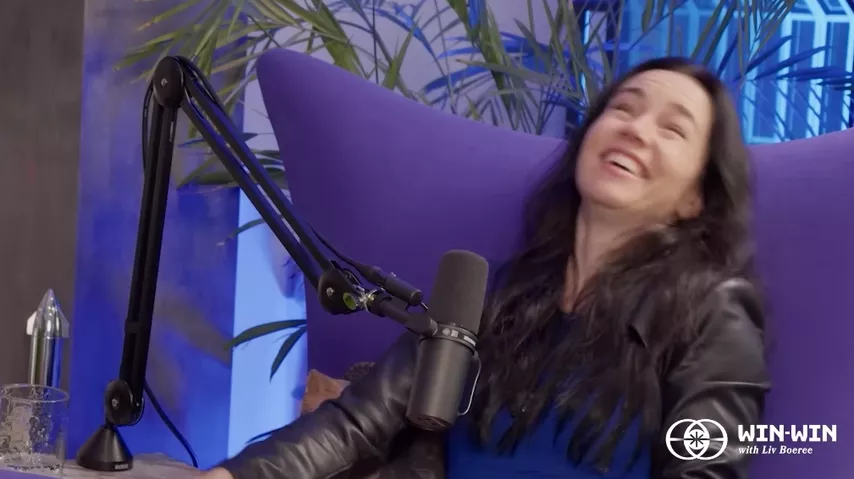
Alexandra: Well, I kind of blocked it out because it was traumatic.
Andrea: He had a stroke or something?
Alexandra: Yeah, he was an older man.
Andrea: This has actually happened a couple of times recently; it's really, really sad.
Alexandra: Yeah, it was sad. His last game ended in a draw, but he was an older man.
Andrea: Wait, what do you mean? His opponent gave him a draw and then he died?
Alexandra: No, no! He died, and to avoid a loss, his last game was a draw.
Liv: Do you think the guy wanted that?
Alexandra: I wonder. I think he was a competitive chess player.
Andrea: I mean, mine aren’t that interesting! It’s more like I’ll go to the bathroom and someone will slide me their business card or something like that. Or there will be a chess fan who’s like, "We're in the middle of suburbia and we've spent three hours waiting for you! We're hosting a party, and we really hope you come!" And I'm like, "I'm probably not going to come, but thanks for the invite!"
I just know chess players can be really shy, and I find it funny. But I've never had anything crazy happen—just funny interruptions in my game. That really speaks to how boring the game can be because there’s not much that happens—you can’t talk to anyone or do anything!







